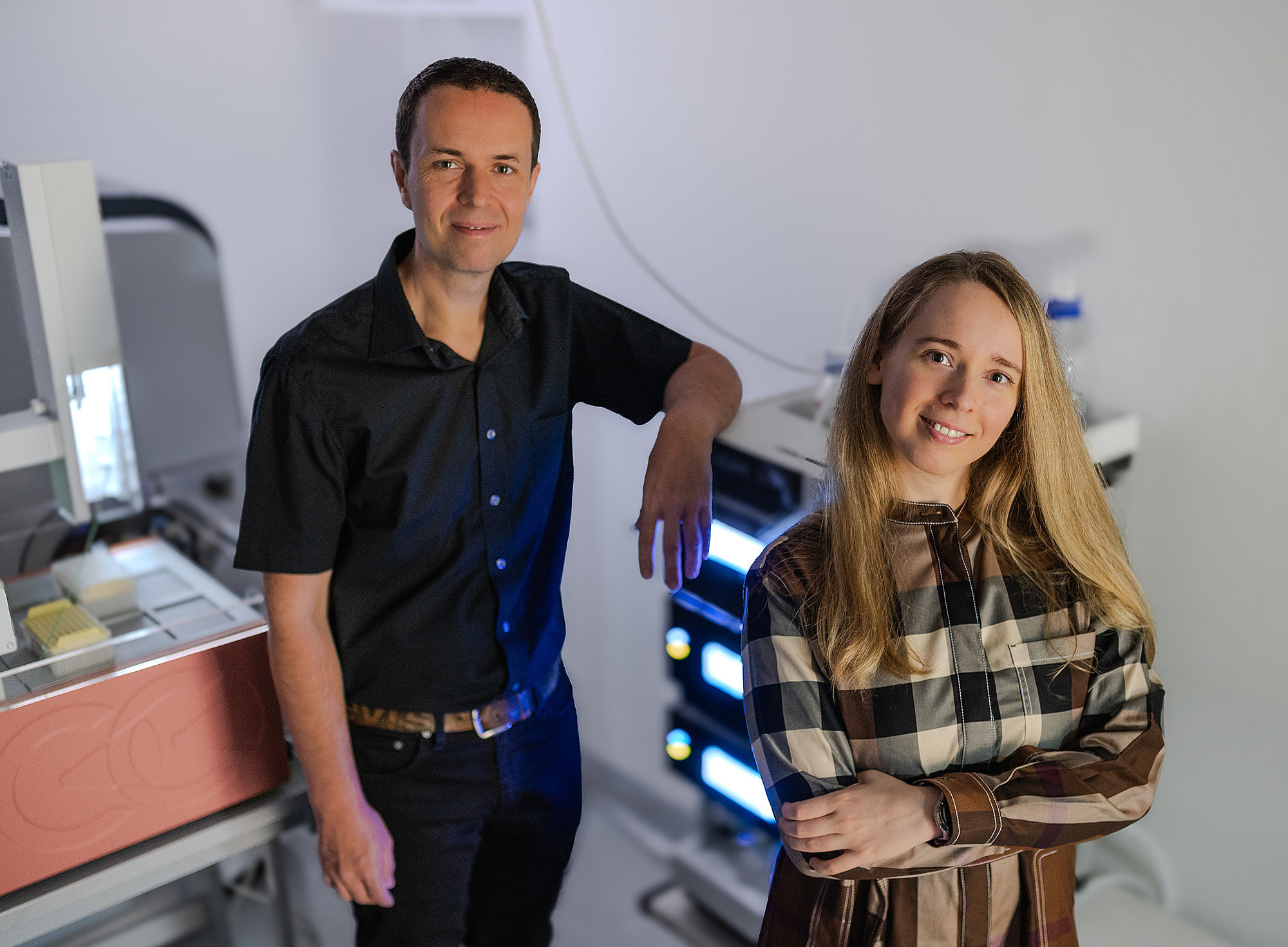For omega-3 lipids, the first double bond is located at the third carbon atom from the end of the fatty acid chain, hence the number in the name. “Many enzymes in our bodies can utilize only fatty acids with specific double bond positions. Aberrant metabolic processes, such as those occurring in cancer, cardiovascular diseases, or autoimmune disorders, frequently entail alterations in omega positions of lipids,” explains Jürgen Hartler, head of the Computational Pharmacology research group at the University of Graz. Therefore, taking a closer look at this structural feature is highly relevant. “Among the enzymes that act specifically on fatty acids with certain double bond positions, phospholipases stand out for their key role in inflammation. This new method now enables the study of these biological mechanisms in unprecedented detail,” adds Edward Dennis, Professor of Chemistry, Biochemistry, and Pharmacology at the University of California, San Diego.
New Computer-Based Method
Until now, the identification of omega positions of intact lipids has been challenging in complex biological samples. Only a few research groups worldwide had access to the required specialized analytical tools such as Evelyn Rampler’s group at the University of Vienna. Hartler, Dennis and their teams, in collaboration with Rampler, are now introducing a new computational method. “Our database in concert with the developed software LC=CL makes omega positions of lipids available in routine chromatography-coupled mass spectrometry methods,” Leonida Lamp, first author of the publication, summarizes this innovation. In this way, researchers worldwide will get access to this crucial information, which will significantly advance lipid research. Lamp adds: “Moreover, our method has proven to be far more sensitive than prior approaches, making omega position information accessible even for lipids in very low concentrations.” Gosia Murawska, co-first author of the publication, gives an example: “A key enzyme among the phospholipases is cPLA2. It has been studied for decades. Now, LC=CL enabled us to prove that cPLA2 specifically converts mead acid, an omega-9 fatty acid. This demonstrates that our method is an essential milestone to advance precise therapeutic strategies, such as for inflammation-related diseases.”
Publication
Computationally unmasking each fatty acyl C=C position in complex lipids by routine LC-MS/MS lipidomics
Leonida M. Lamp, Gosia M. Murawska, Joseph P. Argus, Aaron M. Armando, Radu A. Talmazan, Marlene Pühringer, Evelyn Rampler, Oswald Quehenberger, Edward A. Dennis, Jürgen Hartler
Nature Communications, DOI: 10.1038/s41467-025-61911-x
